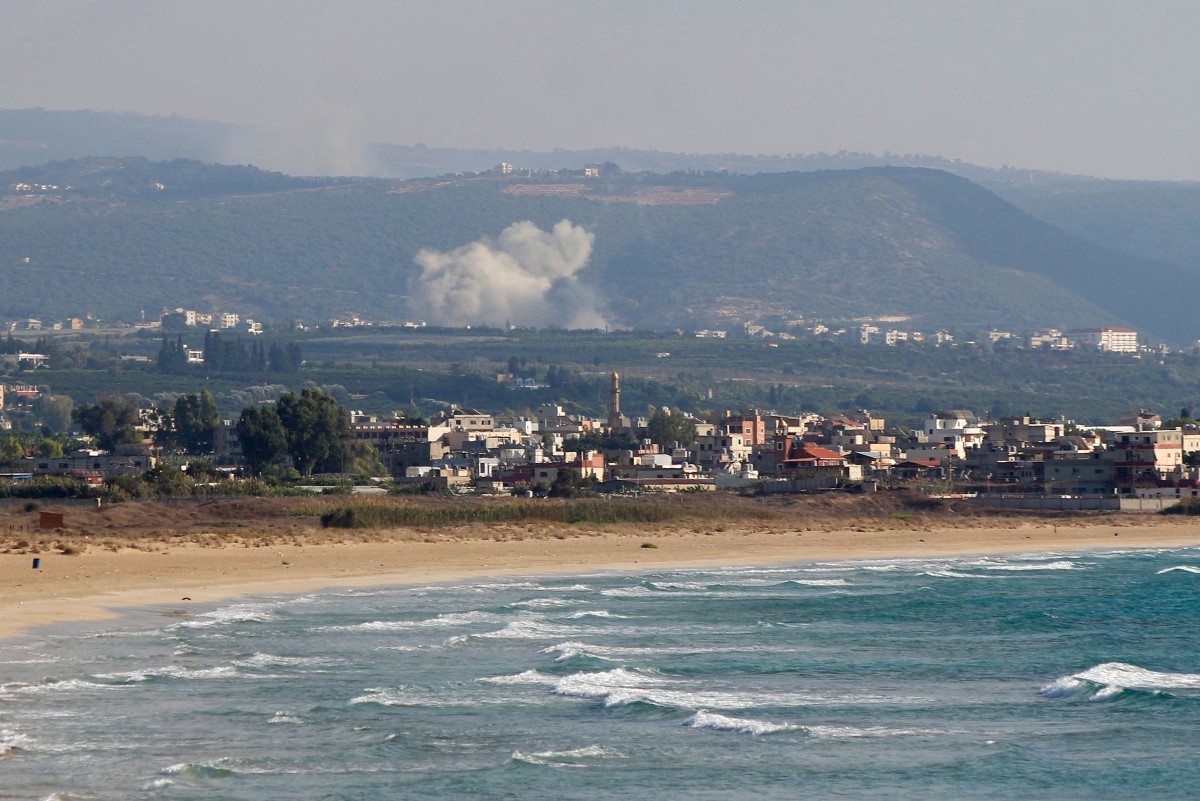Sidon, Lebanon – Piles of fishing nets lay on land unused in the southern Lebanese port of Sidon on Tuesday as fishermen stayed ashore after the Israeli military warned of strikes against fighters along the coast.
Commercial vessels and leisure boats were anchored in the harbor, while the city’s ancient fish market fell unusually quiet, with traders trying to peddle the catch from earlier in the week.
“The Lebanese army told us we weren’t allowed to go out, and we’re respecting that,” said Mohammed Bidawi, a member of the local fishermen’s union.
“If it continues like this, the market will close too.”
After nearly a year of cross-border clashes, Israel intensified its bombing campaign in Lebanon on September 23, killing more than 1,100 people and displacing over a million from their homes, according to official figures.
The Israeli army warned late Monday that it would expand its operations against the Lebanese fighter group Hezbollah to Lebanon’s coast.
It warned people to stay away from the shore in the area south of the Al-Awali River, which flows into the sea to the north of Sidon.
Issam Haboush, another fisherman, said he was worried about his family.
“Fishing is the way we support our children. If we don’t go out to sea, we won’t be able to feed ourselves,” he said, adding that hundreds of families depended on the trade.
Bidawi said the de facto ban on fishing in Sidon had plunged around “5,000 to 6,000 people” into difficulty, the latest blow after a huge financial crisis in the country since 2019.
“The fishermen and traders at the fish market are going to need help,” he said.
Before the war, Lebanon’s fleet of 3,000 fishing boats reaped between 3,000 and 3,500 tons of fish each year, the UN’s Food and Agriculture Organization said in 2021.
Fisherman Hamza Sonbol said he and his colleagues had become destitute overnight.
“We’ve become like the country’s displaced,” he said.
‘Upsetting’
Freediving instructor Marwan Hariri, 47, also has a boat in the port to take students out on for lessons.
“Since yesterday I’ve been feeling very down,” he said.
He had already lost 70 percent of his students in the past year of border clashes, as they largely came from southern areas under heavy Israeli bombardment, he said.
“I haven’t even been opening the diving center. I’ve just been going down to the sea to go spearfishing,” he said.
Despite the financial crisis and the tensions in the south, he was still enjoying diving with his speargun which he said was a way to temporarily escape from the news.
On Monday, he put his catch up for auction among acquaintances and managed to sell it for $56.
Then the Israeli military issued its warning.
Despite the perfect weather conditions on Monday morning, when he went down to the beach, he saw no fishermen coming back on their boats.
“It was upsetting,” he said.








